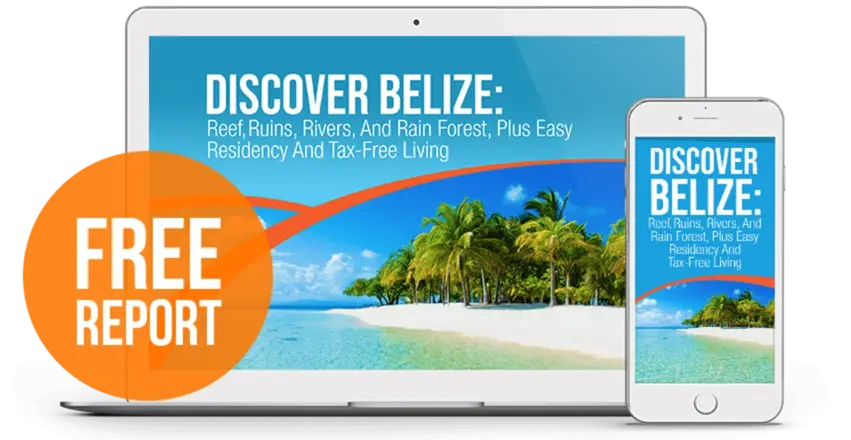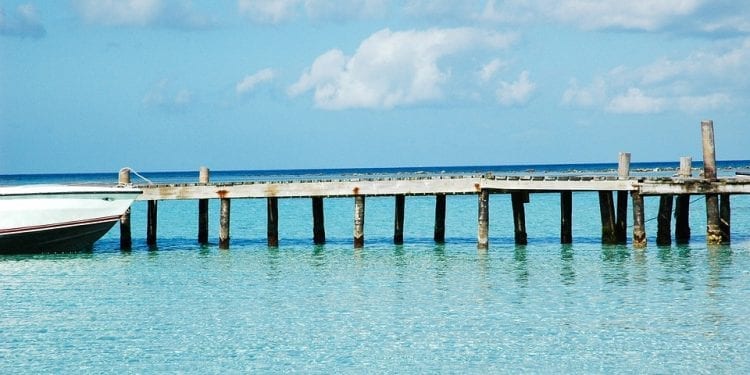While Belize’s QRP (Qualified Retired Persons) visa gets a lot of press, changes in the program are making it less attractive to expats… especially those already in Belize. A number of expats I know are letting their QRP status lapse.
Here’s why…
The QRP visa is basically a dressed-up tourist visa. As such, it is administered by the Belizean Tourist Board (BTB), not the Immigration Department. The Immigration Department, however, does issue the official laminated cards, which is the BTB’s justification for why QRP visas are often not available until March despite the annual deadline for renewal being Dec. 15.
To qualify for QRP, you must be 45 years of age or older, in good health (proven by medical exam in Belize), and show a monthly US$2,000 income. You must also spend 30 days per year in Belize (some government sources state they must be consecutive, others simply say 30 days).
For US$1,200 in fees, QRP gives you “official status” in Belize—you can access Belizean lines at immigration, less taxes on flying out of the country, freedom from having to get a monthly passport stamp… and not much else. It does allow you to import one car every three years, and all of your household goods within 12 months of receiving QRP.
Renewing Your QRP Visa
You must renew QRP annually for a US$50 fee and to qualify show that you have deposited your US$24,000 (the equivalent of US$2,000 a month) in a Belizean bank.
You could, of course, wire your US$2,000 every month, but that incurs more fees. And the more you wire at one time, the lower the percentage the bank charges you. If you wired US$2,000 monthly, you’d pay the fee for receiving the wire 12 times, with the fee increasing each time you wired.
Currently, you can keep your funds in U.S. dollars by using international Belizean banks, but this could easily change. If forced to deposit in a domestic Belizean bank in future, and thus convert to Belizean dollars, you’d get a less-favorable rate than the official BZ$2 per US$1. International banks are more user-friendly and lack the lines-out-the-door often seen at domestic versions of the same bank.
Making sure your funds are wired by the April 15 deadline for the next year can be a time-consuming process. Even if you wire funds out of the same Belizean account before wiring them back to be re-deposited, you could still need all kinds of documents to show the funds’ source. It can take several weeks and phone calls to the bank to get the money deposited properly.
Back to the transfer fees I mentioned… Our Belizean bank, Atlantic International, charges us US$35 to receive the wired funds and US$100 to wire them out. Banks here also charge you a percentage of your funds for the privilege of withdrawing them—which is why the only thing we do with our Belizean bank account is wiring funds in and out once a year.
Moving To Belize
If you’re planning to move to Belize with your household goods, then becoming QRP can save you a considerable amount.
Once they have moved their goods into the country, more and more expats I know are asking why they should bother with QRP. It does allow you to import a new car (five years old or less) and avoid the monthly tourist-stamp dance, but it also requires you to make two trips immigration each year to submit your annual QRP application and to pick up the card when it’s ready. And the limbo you wait in at the beginning of each year, when you have completed your QRP application but not received a card or any official proof of your status, is an annoying interim.
Entrepreneurship And The QRP Visa
In addition to renewal hassles, restrictions on QRP holders are getting more stringent every year. A few years ago, expats were allowed (and even encouraged) to start or own businesses, in which they could play a supervisory role. This potentially benefitted Belize in terms of employment, expertise, and increased tax revenue. That’s not only no longer allowed, but QRP holders can’t profit in any way from their investments in Belize.
You have a guest room in your house and you’d like to Airbnb it? Not only would this be taxed, but it could cause you to lose your QRP status altogether.
The Paperwork
QRP’s application process requires quite a lot of paperwork that can seem redundant or unnecessary to an American, such as flowery letters of reference from two different banks. Because websites list these requirements quite clearly, meeting them is more a question of slogging down the list rather than something more onerous. Your physical exam may be required to be performed by a Belizean doctor… cheaper than a U.S. medical doctor’s physical, but it means you may have to be in Belize before completing your application.
While the website states that the BTB guarantees to process your application within three months, six-month delays or more aren’t uncommon. If you’re gunning for QRP and wish to bring your belongings with you when you arrive, it’s a great idea you begin the application process six months before your intended arrival… as are regular phone follow ups. Phone calls and emails to the BTB are not religiously answered, so patience is often required.
Various attorneys and other ambitious expats may offer to handle the QRP process for you for substantial fees. Their services are unnecessary. Even if you decide to go with a professional, you’ll still be required to meet the same list of document requirements, which only you can compile. It may be true that finding someone on the ground who knows the ropes may make it easier for you… or, at least, you’ll get a shoulder to cry on and someone who’ll probably answer your phone calls.
Kacie Crisp
Belize Insider












